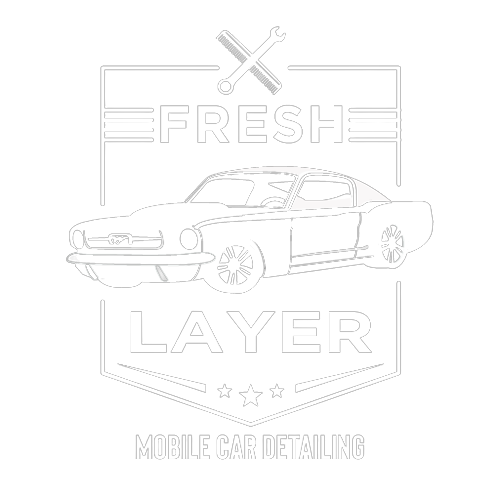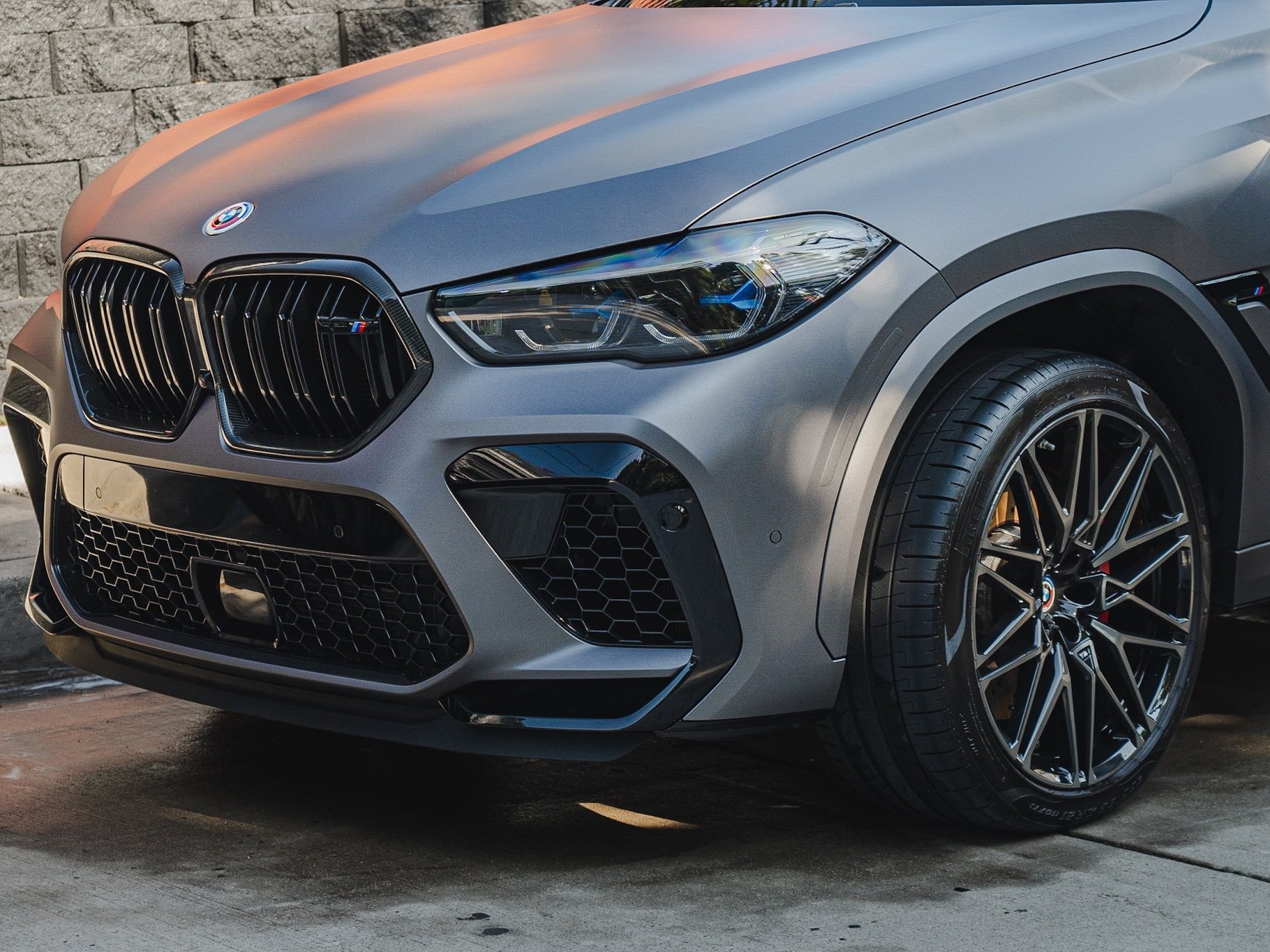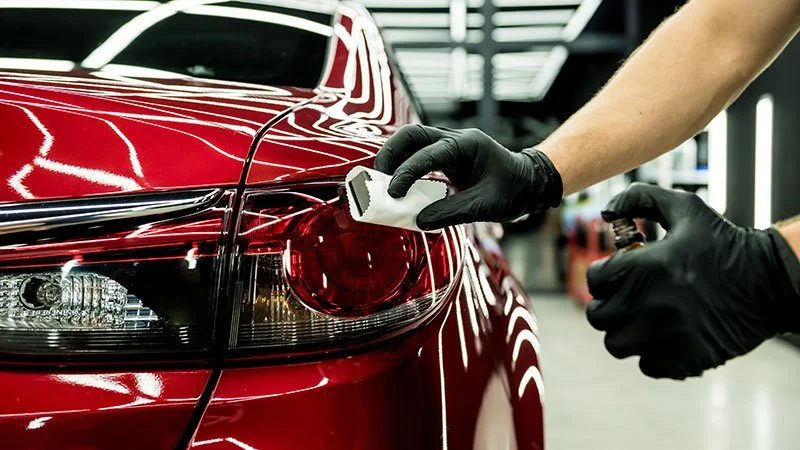Ceramic Coating Cost
Ceramic coating has revolutionized the way we protect and maintain the aesthetic appeal of our vehicles. This advanced solution involves applying a liquid polymer that chemically bonds with the vehicle's factory paint, creating a layer of protection that is both durable and long-lasting.
It not only shields the paint from harmful UV rays, bird droppings, and acidic contaminants but also enhances the gloss and depth of the car’s exterior.
Understanding the cost of ceramic coating is crucial for car owners considering this investment. The price can vary widely depending on several factors, including the quality of materials used, the size of the vehicle, and the expertise of the technicians applying the coating.
By exploring the costs involved, vehicle owners can better gauge the value it offers in terms of protection and longevity versus the initial expense. This knowledge helps in making an informed decision that aligns with their needs and budget, ensuring that their investment is both effective and economical.
Factors Influencing the Cost of Ceramic Coating
When considering ceramic coating for your vehicle, it’s important to understand that several factors can affect the overall cost. Here’s what to consider:
Quality of the Materials
The cost of ceramic coating can vary significantly based on the quality of the materials used. High-quality coatings that offer better protection and longer durability are generally more expensive.
These premium products require advanced chemical formulations that provide superior UV protection, chemical resistance, and hydrophobic properties.
Size and Type of Vehicle
The size and type of the vehicle also play a crucial role in determining the cost. Larger vehicles, such as SUVs and trucks, will require more coating material, leading to higher costs.
Additionally, complex vehicle designs with more intricate surfaces and curves can increase the labor required, impacting the overall price.
Geographic Location
Prices for ceramic coating can also differ based on geographic location. In areas with higher living costs or where ceramic coating services are in greater demand, prices may be higher.
Conversely, in regions with more competition or lower costs of living, prices might be more affordable.
Reputation and Expertise of the Service Provider
The service provider’s reputation and level of expertise significantly influence the cost. Established professionals with a proven track record of providing high-quality coatings are likely to charge more for their services.
These providers bring experience and precision to the application process, which can be crucial for achieving the best results and longevity from the coating.
Understanding these factors can help you navigate the various options and prices to find a ceramic coating service that offers the best balance of cost and quality to meet your needs.
Average Costs of Ceramic Coating
Ceramic coating is an investment in the longevity and aesthetics of a vehicle. The costs can vary widely depending on the vehicle type and the quality of the coating. Here’s what you can typically expect:
Breakdown of Average Costs for Different Vehicle Types
Small Cars and Sedans: For smaller vehicles, ceramic coating can range from $700 to $1800. These prices depend on whether you opt for a basic package or a more comprehensive coating that includes multiple layers for enhanced protection.
SUVs and Larger Vehicles: Due to their larger surface area, SUVs and trucks typically cost between $800 and $2000 for a ceramic coating. The higher end of this range often involves additional prep work and more material.
Luxury and Sports Cars: High-end vehicles may require specialized attention and premium coatings that can range from $1,000 to $2,000 or more, reflecting the need for meticulous application and the use of top-tier products.
Comparison of Initial Costs vs Long-Term Benefits
Initial Costs: While the upfront cost of ceramic coating may seem high, it's important to consider the level of protection it offers.
A professional application ensures that your vehicle is covered with a hard, protective layer that can resist environmental and chemical damages far better than standard wax treatments.
Long-Term Benefits: Over time, ceramic coating can prove to be cost-effective. The durability of ceramic coatings can extend the need for reapplications far beyond that of traditional waxing—lasting several years versus a few months.
This longevity reduces the frequency of protective treatments needed. Additionally, the enhanced gloss and paint protection maintain the vehicle’s aesthetic appeal, potentially increasing its resale value.
Ceramic coating represents a significant upfront investment but offers substantial benefits that can justify the initial expense.
By protecting against wear and tear and reducing maintenance costs over time, ceramic coating provides both practical and financial long-term advantages.
DIY Ceramic Coating vs. Professional Application
For vehicle owners considering ceramic coating, deciding between a DIY approach and professional application is crucial. Each option has its own set of benefits and drawbacks, influenced by cost, convenience, and the quality of the results.
Overview of DIY Ceramic Coating Kits
DIY ceramic coating kits are widely available and typically range in price from $50 to $150. These kits come with everything needed to apply the coating, including the solution, applicator pads, and often a set of detailed instructions.
The coatings in these kits are generally formulated to be more user-friendly, with a more forgiving application process than the professional-grade coatings.
Costs Associated with DIY versus Professional Services
DIY Costs: The primary appeal of DIY kits is cost-effectiveness. With prices significantly lower than professional services, they offer an affordable alternative.
However, additional tools and preparations might be required, such as high-quality cleaning and possibly paint correction products.
Professional Costs: Professional ceramic coating services can cost between $500 and $2,000.This price covers not just the coating but also the professional’s expertise, high-quality materials, and often a warranty. Professionals also perform thorough vehicle preparation, including a detailed wash and paint correction, which is crucial for the best coating results.
Pros and Cons of Each Approach
DIY Pros:
Cost Savings: The most obvious benefit is the lower cost compared to professional services.
Flexibility: You can apply the coating on your own schedule and pace.
DIY Cons:
Skill Level: Proper application can be challenging; mistakes can lead to uneven coverage or damage to the paint.
Durability: DIY kits may not offer the same level of durability or finish quality as professional-grade coatings.
Professional Pros:
Quality and Durability: Professionals use high-grade materials that likely offer better protection and a more appealing finish.
Expertise: Trained technicians can ensure a flawless application and address any paint issues before applying the coating.
Professional Cons:
Cost: The main drawback is the significant cost.
Time: Scheduling and completing the service can take time, requiring you to be without your vehicle for a day or more.
In summary, while DIY kits provide an affordable and flexible option for applying ceramic coating, the expertise, superior materials, and guaranteed results of professional application often justify the higher cost for those looking for the best protection and aesthetic enhancement for their vehicle.
How to Choose the Right Ceramic Coating Service
Selecting the right service provider for ceramic coating involves careful consideration to ensure quality, durability, and value. Here’s a guide to help you make an informed choice:
What to Look for in a Service Provider
Certifications and Training: Look for a provider who has certified technicians with specific training in applying ceramic coatings. Certifications indicate a level of professionalism and expertise.
Quality of Materials: Ensure that the service uses high-quality, reputable products. The type of ceramic coating used can significantly impact the results and longevity of the coat.
Detailed Service Descriptions: A reputable service provider should offer clear, detailed descriptions of their coating packages, including what each service entails and what kind of results you can expect.
Warranty and Aftercare Support: Check if the service offers a warranty on the coating and post-application support, which speaks to their confidence in the quality and durability of their work.
Questions to Ask Before Making a Decision
What types of coatings do you offer, and which do you recommend for my vehicle?
Can you provide examples of previous work or case studies?
What pre- and post-application procedures are included in your service?
What is the expected lifespan of the coating, and what maintenance do you recommend?
Are there any guarantees or warranties included with your service?
Checking Reviews and References
Online Reviews: Look up the service provider on online review platforms, social media, and forums. Pay attention to both positive and negative reviews to get a balanced view of their reputation.
References: Ask the provider for references or contact information of past clients. Reaching out to these clients can provide firsthand insights into the quality of service and customer satisfaction.
Gallery or Portfolio: Many providers maintain a gallery of their work, either online or at their place of business. Reviewing these images can give you a sense of the quality and effectiveness of their coatings.
By considering these factors, asking the right questions, and doing thorough research, you can confidently choose a ceramic coating service that will offer the best protection for your vehicle and ensure that your investment is worthwhile.
Maintenance of Ceramic Coating
Maintaining a ceramic-coated vehicle ensures that it continues to look great and stays protected against the elements. Here are essential tips and insights into maintaining your ceramic coating effectively:
The Impact of Maintenance on Overall Cost-Effectiveness
Regular maintenance extends the life of the ceramic coating, which can significantly enhance its cost-effectiveness.
By preserving the integrity and appearance of the coating, you reduce the need for frequent reapplications and can avoid costly repairs or touch-ups. Proper care ensures that the vehicle remains in pristine condition, potentially increasing its resale value.
Our Latest Post: How to Wash Ceramic Coating
For detailed guidance on the best practices for washing a ceramic-coated vehicle, you can refer to our latest blog post titled “How to Wash Ceramic Coating.”
This post provides step-by-step instructions and recommendations for products that are safe and effective for maintaining your coating.
Get Our Ceramic Coating Maintenance Wash Service
If you prefer a professional touch, consider our Ceramic Coating Maintenance Wash service.
This service is tailored to vehicles with ceramic coatings, ensuring that they are cleaned with the utmost care and appropriate products, thus preserving the coating’s protective qualities and finish.
By following these maintenance tips and utilizing the right services, you can ensure that your ceramic coating continues to protect and enhance your vehicle’s appearance for years to come, making it a wise investment in the long-term care of your vehicle.
FAQ Section: Ceramic Coating Costs
-
The cost of ceramic coating can vary significantly based on several factors, including the size of the vehicle, the quality of materials used, and the reputation of the service provider. Generally, prices can range from $600 for smaller cars with basic packages to $2,000 or more for luxury vehicles with premium coatings.
-
Costs vary due to differences in the quality of the ceramic formulas, the size and type of the vehicle, the level of prep work required (such as paint correction), and the geographic location of the service provider. Higher-end services often include a more thorough preparation process and use top-tier products, which contribute to a higher overall cost.
-
Yes, for many vehicle owners, ceramic coating is a worthwhile investment. It offers enhanced protection against environmental factors, reduces the need for frequent cleanings, and maintains the vehicle’s aesthetic appeal. The long-term benefits, such as decreased maintenance costs and preservation of the vehicle’s value, often outweigh the initial expense.
-
While DIY ceramic coating kits are available and can save money on initial application costs, they generally offer less durability and protection compared to professional applications. If not applied correctly, DIY coatings can also lead to uneven coverage and potential damage. For most owners, professional application is recommended for optimal results.
-
The longevity of ceramic coating depends on several factors, including the quality of the coating and how well the vehicle is maintained. Generally, a professionally applied ceramic coating can last between 2 to 5 years. Regular maintenance can extend its lifespan.
When contemplating the addition of a ceramic coating to your vehicle, it is essential to consider a broad range of factors that influence both the upfront cost and the long-term benefits.
The quality of materials, the size and type of your vehicle, the expertise of the service provider, and the geographical location all play significant roles in determining the overall expense. An understanding of these factors ensures that you can make an informed decision that balances cost with quality.
In conclusion, ceramic coating represents a significant but valuable investment in the longevity and preservation of your vehicle’s appearance.
By carefully selecting a reputable provider and maintaining the coating correctly, you can maximize this investment, ensuring that your vehicle remains in top condition for years to come.









